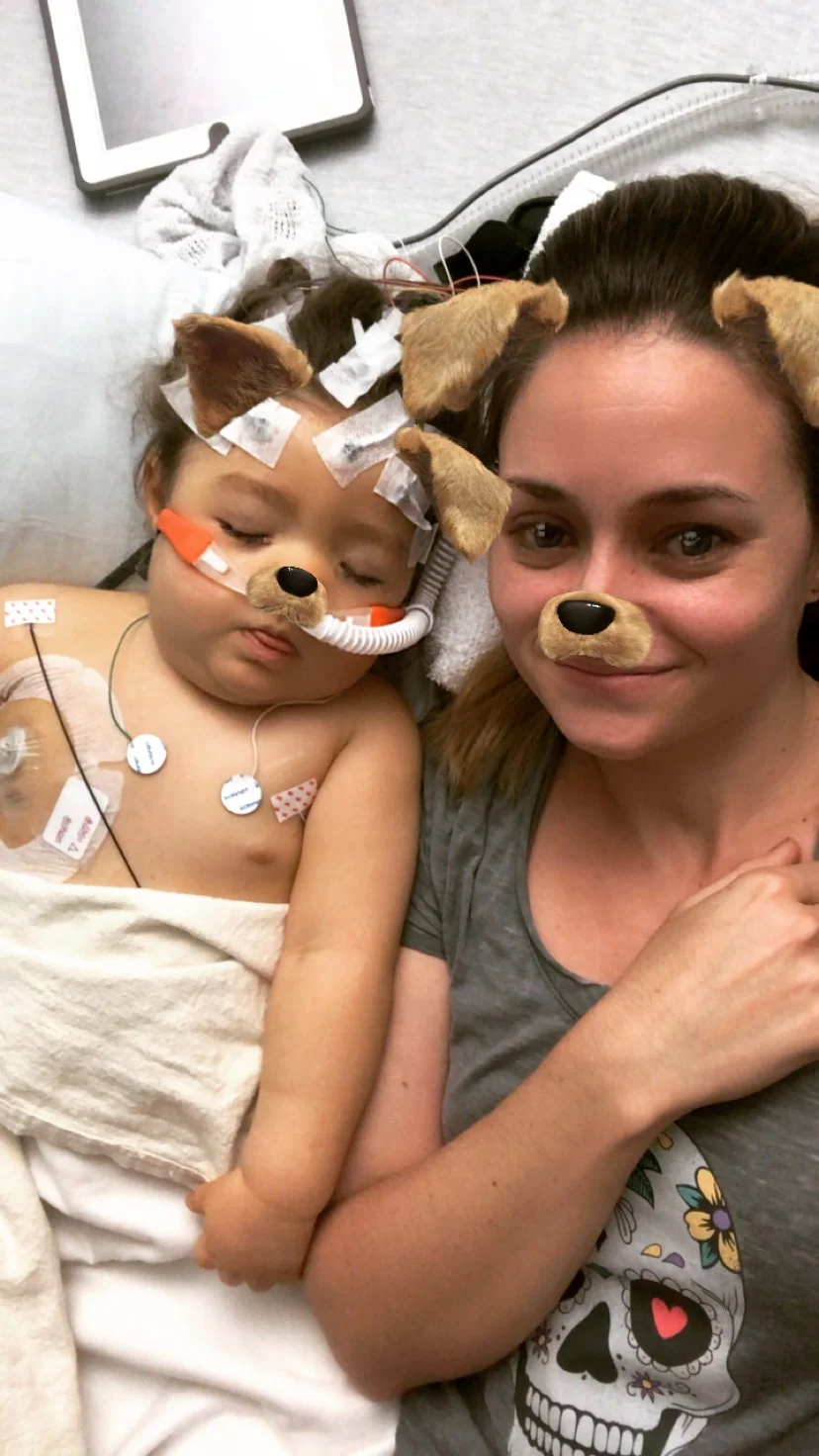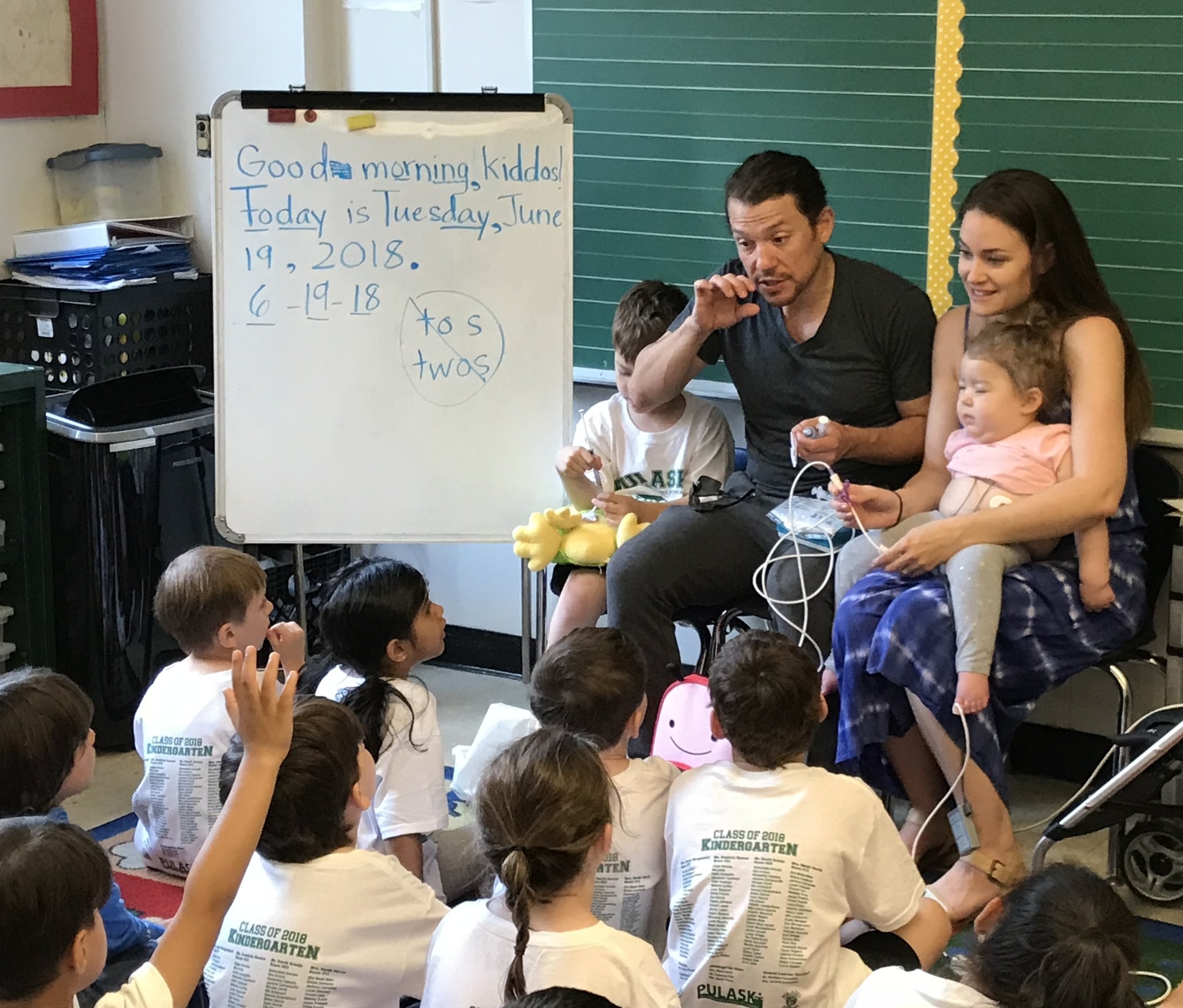Rapping not required, advocacy pt 2
If there is one thing I want you to take from this post it is this: No one is going to care about raising awareness for epilepsy as much as those that this wretched disease has touched. If we are not out there educating, raising money and awareness no one else will. It is up to the epilepsy community to get out there, to use our voice to make people care.
Slap a filter on that hospital selfie and hit share!
My fourth pillar of advocacy, and perhaps the foundation for all the rest, is social/community. Simply put, this is family, friends, co-workers, social media circles: literally anyone and everyone we come into contact with on a daily basis. The number of ways to advocate for epilepsy in this pillar is endless. Social media is probably the most accessible whether its sharing an article about epilepsy or posting photos while undergoing an EEG. Our family has been fortunate enough to have access to a national platform because all of a sudden people care what my husband has to say since he can rap and grow a man bun. Thankfully man buns are not necessary to be a social advocate nor is rapping or being any level of famous. You’d be surprised how many people will listen if you just start talking. I try to use the word epilepsy as much as I possibly can in conversations just so people are hearing it and it gets into their subconscious as an issue.
For example, with strangers:
“Oh, your sweet girl looks so tired”
“Actually, she has epilepsy and this is her version of awake”
Now, they may not say anything, they make look at Adelaide with pity, or they might ask questions to which I am more than happy to answer. Either way, they have heard the word ‘epilepsy’ that day.
With my Lyft drivers:
“What do you do?” (my former dreaded question)
“Well, my daughter is severely disabled due to epilepsy so I stay home with her and am an epilepsy advocate and fundraiser.”
“Oh, I’m sorry to hear that. My Aunt had seizures, or a seizure disorder, or something like that but it wasn’t the same as your daughter.”
“Actually, your Aunt had epilepsy, that’s what a seizure disorder is and it may not have been as damaging but it was probably still pretty challenging for her.”
Maybe I’m presumptive and obnoxious and they write me off, but maybe when they go home, they google epilepsy and then I’ve brought one more person into the fold.
Epilepsy 101: the Kindergarten edition
My other favorite place to chat epilepsy is at my son’s school: with his teachers, his friends and their parents. Last year we took Adelaide into my son’s kindergarten class to talk to them about epilepsy. Shout out to Mrs. Harris for inviting us! We taught his classmates about what Adelaide’s seizures looks like, her different equipment, showed them her g-tube and reiterated above all else that at the end of the day Adelaide is just a little girl who needs friends too. Sure, they were more fascinated by what all the buttons did on her pulse ox but they were also exposed to epilepsy. To this day, when I bring Miss A with me to school pick-up, the kids come over to her stroller and say hi. They want to hold her hand (Purell first, dirty munchkins! - and don’t take offense cuz I’d make my own son bathe in Purell if I could) and ask questions about any new equipment they might see. Most importantly, they aren’t afraid of her and it only took a 15 minute visit to their classroom.
Don’t just take my word for it… take Danny Glover’s!
Look, I get it. It is much easier for me to publicly speak about epilepsy because its ravaging my daughter who is cognitively a newborn and will never hold a job. We have nothing to lose by sharing our story - that doesn’t mean its easy - I still can’t get through a public speech without crying, even with my BFF Zoloft. But Adelaide isn’t going to face discrimination, lose friends or a job because I’m discussing her epilepsy - my tears pale in comparison to the potential loss of security and stability others might endure. For those with epilepsy that are able to lead “typical” lives, admitting their diagnosis can be terrifying. The general public doesn’t understand seizures, admittedly they can be alarming to witness, and discrimination is still rampant (looking at you Notre Dame). Which is why we need the able-bodied and minded individuals with epilepsy to speak out that much more! The average person doesn’t understand that epilepsy doesn’t give a damn how old you are, what color your skin is, who you love or how much money you have. Anyone and everyone could be the 1 in 26. People need to understand that just because epilepsy isn’t touching their lives today doesn’t mean it won’t come knocking on their door tomorrow. This is a much more powerful statement when the unknowing person discovers that someone they already know is fighting the big E. Epilepsy isn’t just knocking on their door it might already be in their freaking house! Of course, it’s not fair for me to ask anyone to risk their job or security but for those that are socially and fiscally safe - please speak up for those that can’t. Epilepsy is not rare and its about damn time the world knows it, but there is no way they will if they don’t know how many of us there are. Epilepsy is 65 million people strong and that’s not counting the hundreds of millions more that are affected by a loved ones diagnosis. You never know who you can help or what difference you can make until you try. No rapping required.






